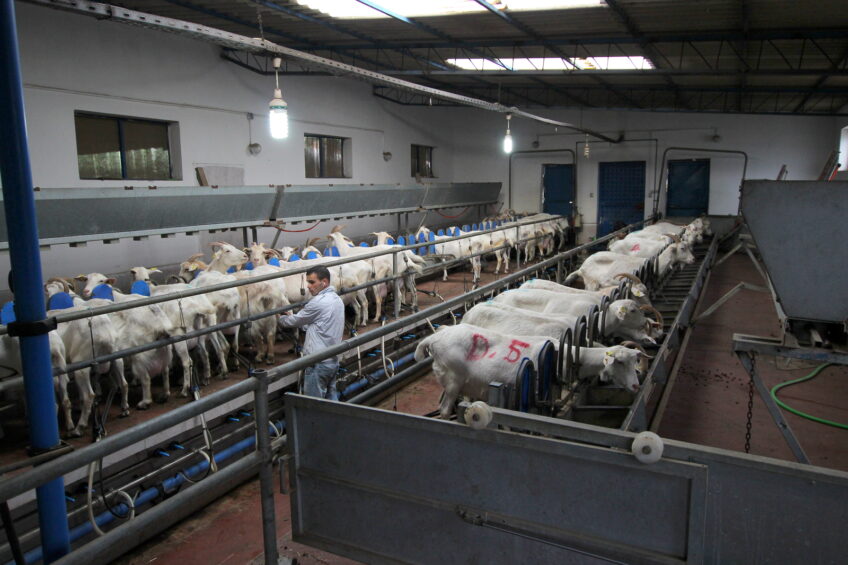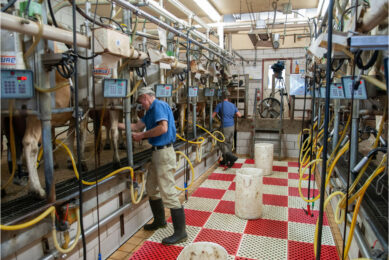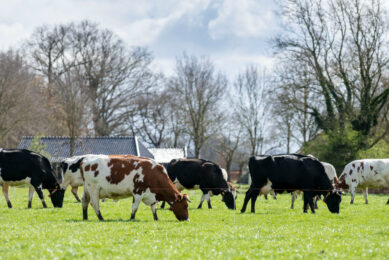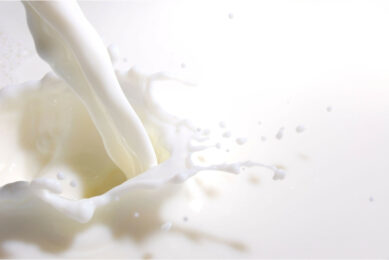Milking sheep and goats a profitable business in Turkey

Farming with sheep and goats in Turkey is very popular today but overall numbers were in a heavy decline from the mid-90s to around seven years ago.
Currently there are around 24 million head of sheep and five million goats in Turkey but two million sheep are sacrificed each year during a special holiday in the country.
Turkish people traditionally show a preference for meat and milk from sheep rather than from beef or goats but that trend is slowly starting to change. There are just over four million farmers involved in the keeping of sheep and goats in traditional family farm setups. Average flock sizes can be as low as 12 but in the case of Ozer Turer, his flock is well above that average with 4,200 animals.

Milking sheep and goats is not an easy job but for Ozer and his family the high demand for the dairy produce is making their efforts very worthwhile. People in Turkey prefer to drink milk from sheep or goats and to dine on fine cheeses, yoghurts and other products made from this milk.
There are many processors and outlets for the milk in all areas in Turkey but a high concentration of sheep and goats are found in the west. Ozer keeps 4,200 sheep and goats in the Izmir area and supplies somewhere in the region of 2,000 tonnes of milk per year. In order to satisfy the daily demand he has to keep such a high number of animals as both sheep and goats have relatively short lactation periods. He is currently milking a total of 1,100 sheep and 1,200 goats to keep up with the demand for the milk and associated dairy produce.
Turer said: “The sheep yield around 250 litres per lactation and the goats around 700 litres per lactation on a twice per day milking system.
“A goat will milk for around seven to 12 months depending on the breed but a sheep milks for a somewhat shorter four months period. “We get €0.85 (£0.67) per litre for our goat milk and €0.70 (£0.55) per litre for our sheep milk. “These are good prices but remember the yields are quite low in comparison to a cow.”

Farm labourer Busra Kurt spends her days working with the sheep and goats focusing on getting the young kids to feed themselves. She has a tough job keeping the others back while trying to get some of the smaller kids to the milk feeder. “They are very funny but a lot of hard work,” she said. “Every time I try to allow some of the kids to drink milk the others keep climbing over the fence to get some more. “But I enjoy working with the sheep and goats especially when a new one is born. They are very cute but we have so many here we don’t really have time to enjoy them.”
The most common sheep breed in Turkey is the White Karaman which accounts for over 40% of all the sheep in the country. It is closely followed by the Red Karaman at 25% and the Daglic (12%) and Kivircik (7.7%). A number of other breeds including Karakul, Sakiz and Imroz make up smaller numbers as well as local crossbred sheep. When it comes to the goats in Turkey over 80% of them are common hair goats and around 20% are Angora goats. Figures suggest there are also over 120,000 milking goats in Turkey. Hair goats are found in all areas of the country, and Angora goats are mainly found in central Anatolia.

Wool from the sheep is normally fairly coarse and is used in the production of carpets but the Mohair from the Angora goats is more valuable and is widely exported. The female sheep and goats born onto Ozer’s farm are bred right through the system as followers for the milking flock. Males from both the sheep and goat flocks are sold for their meat, along with any of the females not suitable for breeding. The meat from sheep and goats is vastly consumed in Turkey and sells for around 20 Turkish Lira (£4.90 or €6.20) per kilogramme on average. The top prices reached for goat meat is €7 per kg (£5.50) and €9 per kg (£7.10) for sheep meat. Ozer Turer said: “There is extremely good demand for the meat from both the sheep and goats. We normally fatten up the males and send them for slaughter. “The prices for the meat are normally quite high which gives us a good outlet for the males from our farm.”
Turkish farmers also export live sheep and goats mainly to Saudi Arabia, Jordan, Lebanon, Libya, Kuwait and Dubai, and mutton and lamb to Iran, Algeria and Iraq. Sheep and goats are grazed outdoors on natural pastures from February but this depends on the area, elevation, the distance from the sea and severity of winter. The vegetation dries off in the beginning of the warm summer period in almost all regions except on high grazing lands.
Autumn rains bring a much needed revival of the vegetation in lowland areas, allowing grazing to continue to the end of November before the animals are housed for the winter.
All Photos: By Chris McCullough
Join 13,000+ subscribers
Subscribe to our newsletter to stay updated about all the need-to-know content in the dairy sector, two times a week.










